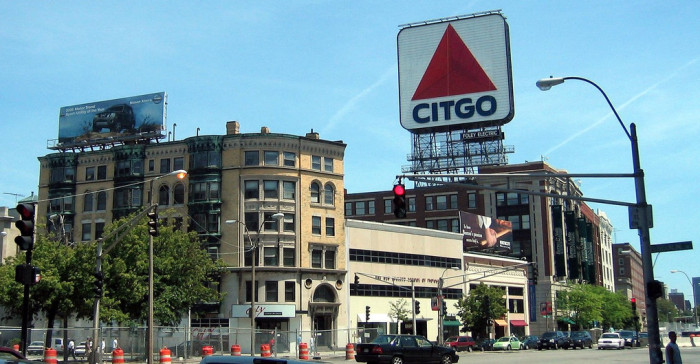Too Many Signs of the Times.
Whenever I travel from here in Hawaii to the mainland United States, I’m reminded immediately of a number of differences. First, although it’s certainly changing, there are all those white faces on the mainland. By contrast, everyone who lives in Hawaii belongs to a racial minority, which probably has a lot to do with why everyone gets along so well.

I’m also always struck by all the outdoor advertising … the billboards. I suppose this is heresy coming from a guy who owned an advertising agency, but I really hate them. Huge garish signs are everywhere—standing in the middle of fields, mounted on tops of buildings—and all lit up at night. It’s awful. (I do grant a waiver to the Citgo sign high above Kenmore Square in Boston. It’s been there for years and has become a Boston landmark that’s visible for miles, including to everyone seated on the first base side in Fenway Park.)

A few years back, during my rail trek across Siberia, I was amazed at the amount of outdoor advertising. It was confined to the cities, but was absolutely everywhere. They don’t seem to go in for the stand-alone billboards, but they plaster entire sides of buildings with their advertising. We stopped in the Mongolian city of Ulan Bator and about a third of the entire front of our hotel was covered by a huge ad.
I suppose I noticed it more than the others in our group because here in Hawaii we are acutely aware that the natural beauty of these islands is what draws millions of visitors to our shores every year. For that reason, our sign ordinance makes outdoor advertising illegal—billboards, in particular—and it’s been the law for almost 100 years.
Signs identifying or promoting a product or service must be on the actual site of the business and in a very specific proportion to the square footage of the face of the building on which it’s located. Furthermore, signs on the second floor and above are not permitted at all. The law is very specific, very restrictive and vigorously enforced.
Many years ago, when I was working for the City of Honolulu, Melody MacArthur, the wife of Hawaii Five-0 actor James MacArthur, owned a shop in a small cluster of stores called Kilohana Square, which was set back from the street. Customers were having trouble finding the entrance and the nine shop owners wanted to erect a sign that could be more easily seen. Melody wanted clarification about the city’s sign ordinance, so I arranged for someone from the responsible city department to go out to Kilohana Square, meet with Melody, and advise her as to what they could and could not do with their signage.
Two days later, Melody called me to say that the city employee had indeed met with her and, while there, had cited four of the shop owners for having illegal signs. The following evening, she said, the Kilohana Square Merchants Association met and voted unanimously to never again ask Jim Loomis for help.


